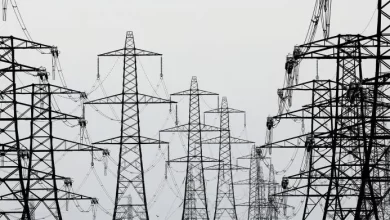RISK AND ECONOMY: How to handle your Auto Insurance Claim

By Ade Fashola
In the event of an accident, it is natural to feel anxious and upset but knowing what to do can help you. Try to stay calm, it will make it a lot easier to deal with the situation and your insurance company afterwards.
The most important step is before the accident happens. You must make sure your insurance is valid at all time. A valid insurance gives you a peace of mind in case accident occurs. During the accident, emotions may be running high, but try to keep your cool. It is not up to you or the other party to figure out who is to blame, just exchange all the necessary information and allow the insurance companies and their adjusters to sort out the rest. Your responsibility is to calm the situation regardless of who is at fault.
Firstly, if it is an auto crash, turn off your car, turn on your hazard lights. Immediately asses your surroundings. Are you or anyone hurt? Do you smell any offensive odor like smoke or gasoline? Are you in dangerous location or heavy traffic? Remember Minimization of loss is important in all insurance claims. If no one is injured, move out of possible harm’s way. If anyone is injured, call for emergency services to come and help. Call for police or any law enforcement within reach even if the crash is minor and nobody is hurt. If it is not a lone accident, you may need a credible witness. Get information of witnesses. Insist the law enforcement officer should get both the third party and your license, vehicle description and registration, insurance and other necessary information. Also, request the responding officer’s name, badge number and contact information. Ask the officer how soon you can get the final copy of the police accident. If the other party is not a vehicle, get the address of the location and identifying information. Remember this is Nigeria, anything can happen.
Secondly, try to exchange information from the other parties involved in the crash. That includes the other party driver’s full name, home address, email address, phone number, driver’s license information, insurance company and policy number, and license plate numbers. If you have a smart phone, take pictures as much as you can or record if necessary. Remember the story may change if not closed tight.
Thirdly, take pictures of all the vehicles involved in the crash from every angle, showing any damage, as well as where the accident occurred and other relevant evidence at the scene of the accident. It is also helpful to take photos of the other vehicle’s license plate and the driver’s license, registration and insurance documents in case you misplace your notes or jotted down something incorrectly.Remember loss adjusters are still coming to assess the damage.Write down everything you remember about the accident, including time of day, weather, road conditions, location, what the other cars were doing and any other pertinent details. If you don’t have a pen and paper, dictate it into your phone using notes to yourself or WhatsApp it to a friend or relatives. That way you will be sure to have every detail you might need later for insurance purposes. You should not try to offer or make any friendly or out-of-court settlement or promise payment to any party without the consent of your insurance company. The insurance company has a right to refuse liabilities arising out of such promises.
Finally, try to contact your insurance company as soon as possible, even from the accident scene, to get the claims process underway.Insurance companies enjoy being part of the claim from onset rather than get caught in messy arrangement. The insurance company will issue a claim form that has to be filled and submitted along with a copy of your certificate of insurance. After verification, the insurance company will appoint a loss adjuster to verify and recommend payments. If the situation degenerates to litigation, it is the responsibility of the insurance company to appoint a lawyer in the defense of you and itself. It is to your advantage to cooperate with your insurance company, providing evidence during court proceedings. If the court orders compensation, the insurance company will then do it directly.
You must avoid situations that may lead to denial or refusal of claim. Sometimes, insurance company may refuse to pay your claim because of several reasons. Except for lapse policy die to late payment of premium, it is not common for insurance companies to deny a third-party claim. Generally, refusal or denial of claim include but not limited to (i) the policy was either not in force when accident happened or (ii) the policy is invalid because you didn’t tell the truth when you applied for insurance, (iii) the item is not covered by your policy (iv) there is an exclusion clause in the policy which means that you can’t claim for what happened, (v) you missed payment of your premium or (vi) you haven’t followed the claims process correctly (vii) you have exaggerated the claim or you are trying to claim for more than you should. If you don’t fall into any of these categories and you think your insurer is being unreasonable in refusing your claim, you can try to talk to them, you can make a complaint using their complaints process. If after all these, you are still not satisfied with the way your claim has been dealt with, get a professional consultant to give you independent opinion. A broker is usually your best option. A broker knows the best way to deal with insurance company including in a worst scenario reporting to the regulatory authority, NAICOM. No company enjoys regulator in its business. Usually your best option in good insurance experience is at the point of purchase. I always advise people to go through an intermediary when buying insurance so that it will be the agent/broker headache at the point of claim to assist you instead of wasting your busy schedule dealing with the insurer.





